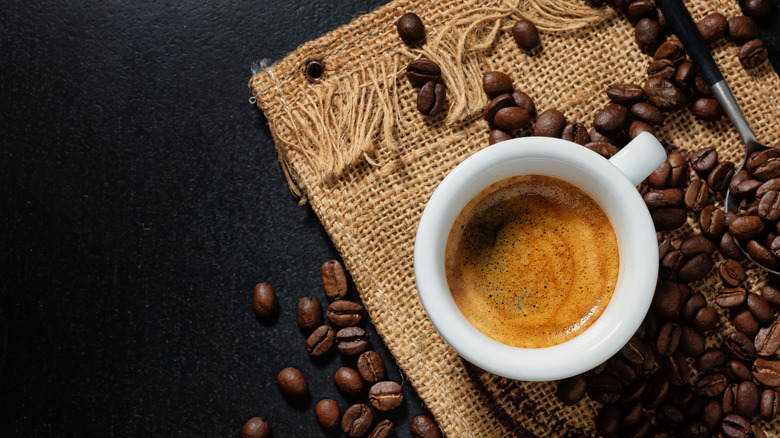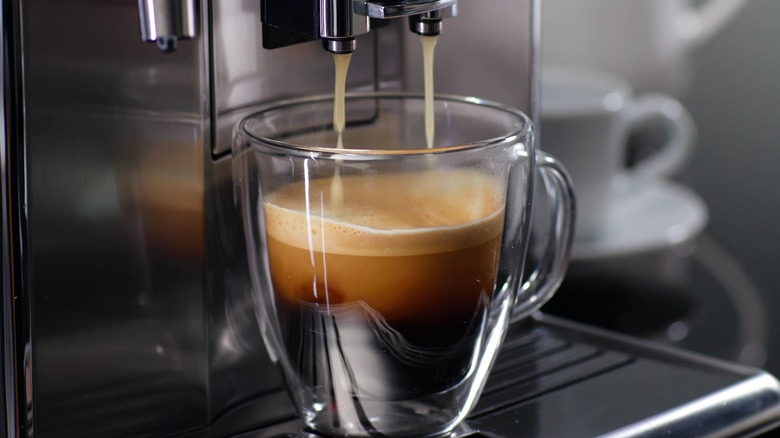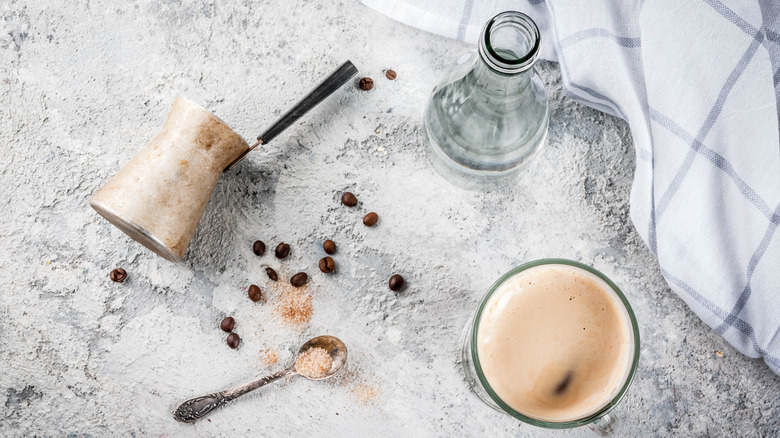The Clever Reason Italians Drink Espresso With Sparkling Mineral Water
Picture this: Turin, Italy, 1884, the year the espresso machine was born. Its creator: Angelo Moriondo, an inventor. A few years pass, and two men become entranced by this glorious creation that brews divine coffee with water and steam. These two men, named Luigi Bezzerra and Desiderio Pavoni, were compelled to make improvements to the machine's design, including Pavoni's addition of a pressure release valve that prevents baristas from getting burned with the splash of hot coffee.
Espresso, which means "made on the spur of the moment," grew in popularity just as quickly as it was made, and the tradition of drinking espresso as we know it was established.
Though born in Italy, this concentrated coffee has become extremely popular worldwide. While some people will get a double shot of espresso added to their drink order, the traditional way of drinking espresso is focused more on the enjoyment of the well-crafted beverage.
Drinking espresso the traditional way
Exalted for its strength, flavor, and effect, espresso is found in coffee shops big and small, with some true fans owning machines for morning coffee. If you have ever ordered a traditional Italian espresso at a cafe, it may have been served alongside a glass of mineral water. Some people might think this is done out of courtesy, which may be accurate, but mineral water also plays a vital role in the refined process of espresso drinking.
If you want to drink espresso the traditional Italian way, you will want to start with a solid swig of mineral water before you take a taste from the little coffee cup. Next, slowly sip on the espresso to thoroughly enjoy its aroma and flavor. Continue alternating between the two, and finally, complete the ritual with a drink of mineral water once the espresso is finished.
Why is mineral water served with espresso?
It's worth noting that Italians use mineral water specifically because the minerals are credited for stimulating the taste buds and cleansing the palate, both before and after you drink the espresso. Water also hydrates the drinker, which is especially beneficial when drinking caffeine and in a warm Mediterranean climate like Italy.
Anyone who has had too much coffee or black tea on an empty stomach is familiar with the caffeine tummy ache. Drinking water before consuming caffeine helps line the stomach and prevent that uneasy feeling. Drinking water before, during, and after caffeine intake can also help counteract an unpleasant caffeine crash.
So, mineral water serves many functions in relation to espresso. Mineral water cleanses your palate both before and after you drink, balances out the dehydrating effects of caffeine, and helps prevent the adverse side effects of high caffeine intake, like digestive pains and energy crashes.


